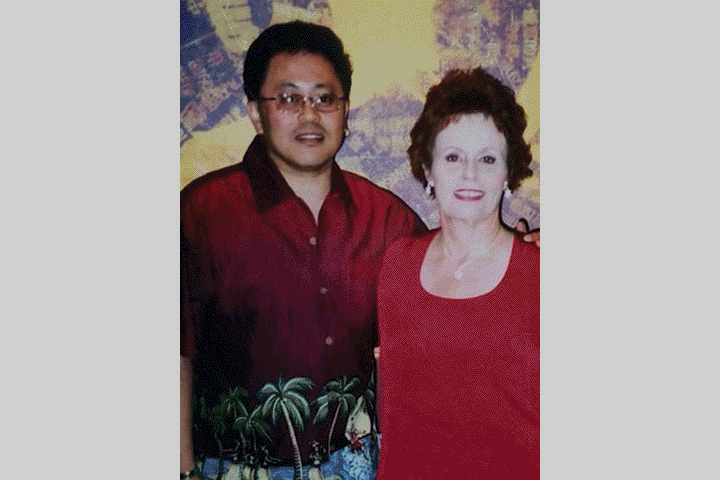Vitamin C Plus Standard Chemo Improves Overall Survival

Researchers from the University of Iowa have found that adding intravenous (IV) high-dose vitamin C to standard-of-care chemotherapy doubles the survival time of late-stage pancreatic cancer patients.
The phase II study, published in the journal Redox Biology in November 2024, found that survival time doubled from eight months to 16 months.
“Treatments for breast cancer and lung cancer have greatly improved and patients are really benefitting, but pancreatic cancer has just been left behind,” says senior author Joseph Cullen, M.D., professor of gastrointestinal surgery and radiation oncology at the UI Carver College of Medicine (Iowa City). “It’s extremely frustrating. When we first saw our results from this study we thought maybe it was a mistake. The data looked too good. But our statistician said it wasn’t a mistake. It’s fair to say we were beyond excited since initially we thought that we might be able to go from about eight months overall survival to maybe 12. We never expected to double survival. So, frankly, I was thrilled to death.”
The Vitamin C Controversy
Vitamin C sure does pack a punch. Technically known as L-ascorbic acid, vitamin C is found naturally in some foods, added to others, and is often taken as a dietary supplement. Its job is to help the body make collagen, an important protein used to make skin, cartilage, tendons, ligaments, and blood vessels. Vitamin C is a powerful antioxidant, and research shows it can help to neutralize free radical molecules, which in excess can damage cells. Scientists have also studied vitamin C’s ability to kill cancer cells.
But vitamin C has a long history and it’s a troubled history, says Cullen, an NIH Research Fellow in the early 1990s. He adds that in the 1970s, studies by Linus Pauling touted oral vitamin C as a kind of cure-all for many health problems, including some small studies showing it might help in cancer treatment. Although these studies had good results, they were marred by controversy and found to be flawed. In the 1980s, researchers at the Mayo Clinic performed several randomized trials showing oral vitamin C really had no benefit in cancer treatment. And so vitamin C fell out of favor.
The glaring problem is that vitamin C was given orally in all of these trials, Cullen explains. Work done in the early 2000s by NIH researchers found a marked difference between oral administration of vitamin C and IV administration. Very simply, IV administration results in higher plasma concentrations of vitamin C in the bloodstream. “When you give it intravenously like (Mark) Levine’s group did at the NIH, the concentrations are higher,” Cullen says, adding that those levels could be “about a thousand times higher” than oral administration.
Cullen and his colleagues at UI were intrigued by Levine’s work. In 2018, UI researchers received a five-year, $9.7 million grant from the National Cancer Institute to test the use of IV vitamin C along with standard treatment in pancreatic cancer, lung cancer, and glioblastoma. “At high levels, vitamin C makes hydrogen peroxide, which kills cancer cells but has little effect on healthy, normal cells,” Cullen explains. The vitamin potentially has cancer-fighting effects on tumors with low levels of catalase, which converts hydrogen peroxide to water and oxygen. Low levels of catalase results in more hydrogen peroxide and more tumor-fighting ability, according to one of the lab’s cell studies. Iron metabolism may also play a role.
To be clear, Cullen does not think that vitamin C given alone will be of much help in cancer treatment. “I do think there may be a place for it in combination therapy,” he adds.
About the Study
This phase II randomized trial was designed to determine whether adding vitamin C to standard chemotherapy of gemcitabine and nab-paclitaxel would increase the survival among patients with late-stage metastatic pancreatic cancer. The study included 34 patients with stage IV disease who were randomly assigned to receive gemcitabine and nab-paclitaxel, or the chemotherapy plus infusions of high-dose vitamin C, three times per week. The main goal of the study was overall survival, but the researchers were also interested in progression-free survival and the occurrence of any adverse events, according to the study authors.
The results showed that average overall survival was 16 months for patients who received 75 g vitamin C infusions with chemotherapy, compared to eight months for those who received chemotherapy alone. Further results found that progression-free survival increased from four months to six months with high-dose vitamin C infusions.
Because of the strong results, researchers stopped the trial early. There were no serious adverse effects among participants. Patients randomized to receive vitamin C reported feeling better ,with an improved quality of life, plus they could also tolerate treatment longer, Cullen says. He acknowledges that the study had limitations in terms of diversity and sample size.
Next Steps
A phase III trial is the obvious next step. And Cullen and his colleagues have already done preliminary work as to the cost and number of sites necessary to conduct a rigorous phase III investigation that would include about 90 patients from multiple sites. However, Cullen acknowledges getting funding for a phase III trial could be difficult.
First, vitamin C is not patentable. “There’s no money to be made,” Cullen says, “So there’s no real incentive for ‘big pharma’ to get involved and fund it.” He adds that many phase II trials are supported by a combination of government grants, like the NIH grant the group received in 2018, or by private donations. Due to the Mayo clinical studies in the 1980s, many oncologists are still leery of vitamin C therapy and really reluctant to use it despite good results from ongoing small trials. For example, Cullen and colleagues conducted a prior trial for patients with unresectable pancreatic cancer, and three of the 14 patients survived beyond nine years.
“The only way this could ever move forward is with a much larger, more diverse, multisite funded phase III trial,” he explains. “Data from a larger rigorous trial or trials would show if vitamin C is really a benefit and get more people on board. Until you have those phase III results you just don’t know. What we really need is a millionaire.”



